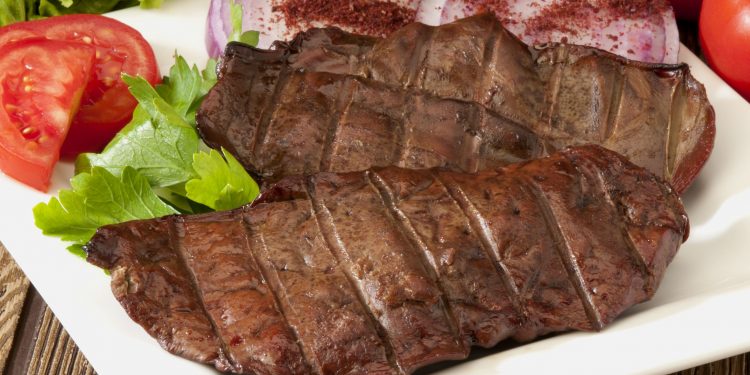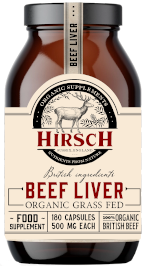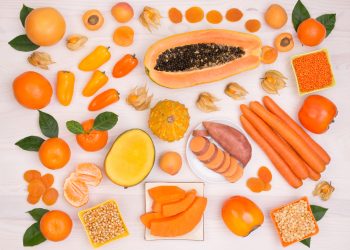Have you been wondering about beef liver’s nutritional benefits? Or what beef liver is made of?
Or maybe you’ve benefited from eating liver already, and are ready to dive deeper into beef liver’s nutrition data.
This article will take an in-depth look at beef liver’s nutrition…including its known benefits, data, facts, and potential downsides.
- Beef Liver Nutrition Facts
- How Does Beef Liver Nutrition Compare?
- Eating Beef Liver if You Don’t Like the Taste
- Beef Liver’s Top Nutrition Benefits
- Beef Liver Nutrition (Raw vs Cooked)
- The Easiest Way to Get Beef Liver’s Benefits
Beef Liver Nutrition Facts
Long before anyone knew about the importance of heme iron or had any clue what a B-vitamin was, ancient cultures were reaping the benefits of these substances in a simple way:
By eating beef liver.
It’s true. Organ meats like beef liver have always been eaten, and they will always be one of the most holistic sources of critical nutrients and cofactors.
Liver’s popularity among the ancients was pretty universal. “While meat of any kind is in great demand, it is interesting to note that the liver of any animal is a favorite,” noted arctic explorer Vilhjálmur Stefánsson of the Inuit people. [1] Meanwhile, Africa’s Nuer tribe believed that an animal’s soul resided in its liver and regarded this organ as being too sacred to touch with human hands. [2]
The beauty of taking beef liver — as opposed to taking that flashy new supplement — is that liver contains a truly time-tested balance of easily absorbed nutrients.
Beef liver’s top vitamins and minerals include vitamin A, vitamin B12, copper, choline, and unique peptides.
And when you compare liver to other foods, its stats become even more impressive….
How Does Beef Liver Nutrition Compare?
Gram for gram, beef liver is one of the most nutritious foods on the planet.
Compared to ‘regular’ beef (muscle meat), it’s especially high in vitamin A, vitamin B12, vitamin K2, and copper. Just 100 grams of liver provides over 100% of one’s RDA for many different nutrients.
Here’s a full nutrition breakdown:
| Nutrient | Beef Muscle Meat (100 grams) | Beef Liver (100 grams) |
| Calcium | 11 mg | 11 mg |
| Phosphorus | 140 mg | 470 mg |
| Potassium | 370 mg | 380 mg |
| Iron | 3 mg | 9 mg |
| Copper | 1 mg | 10 mg |
| Zinc | 4 mg | 4 mg |
| Vit. A | 40 IU | 50,000 IU |
| Vit. D | Trace amounts | 20 IU |
| Vit. E | 1 mg | 1 mg |
| Vit. C | Trace amounts | 25 mg |
| Vit. K2 | 10 mcg | 90 mcg |
| Niacin | 4 mg | 16 mg |
| Vit. B6 | Trace amounts | Trace amounts |
| Vit. B12 | 2 mcg | 110 mcg |
| Folate | 4 mcg | 140 mcg |
Beef liver may also benefit your body composition. How? Its high protein content may help keep you full between meals by boosting your body’s satiety hormones, and its trace carb content may support your thyroid function on a keto diet. [3][4]
Liver’s B vitamin content is also crucial for many metabolic processes, so much so that some studies have found that B vitamins can prevent weight gain. [5]
Eating Beef Liver if You Don’t Like the Taste
Unfortunately, liver’s incredible nutritional benefits are not paired with an incredible taste.
Most people don’t really enjoy the flavour of beef liver — to put it mildly. If that’s you, cooking and eating beef liver may be more than your taste buds can bear.
Health zealots of the past may have resorted to drinking liver smoothies or swallowing tiny pieces of frozen liver (!) to get their nutrients in, but we have a decidedly better idea. Why not put liver into a capsule and take it the same way as any other important supplement?
Taking liver supplement capsules provides the nutritional power of beef liver without the overpowering taste.
Liver supplement capsules are also much more practical than cooking up a liver and onions dish. There’s no cooking, no cleaning, and no off-putting tastes or smells! Liver capsules make getting in your daily dose of sacred nutrients easy.
Beef Liver’s Top Nutrition Benefits
Now that we’ve had an overarching view of beef liver’s benefits, let’s take a look at its top nutrition stats one by one.
What is beef liver high in? Here’s the shortlist.
Iron
In the 1930s, Dr. William P. Murphy and Dr. George Minot discovered that patients who ate beef liver recovered quickly from iron-deficiency-anemia. “If patients ate abundant amounts of liver daily, their condition improved,” Murphy noted after extensive research. [6]
Beef liver’s iron content shows us why. Just 100 grams of beef liver contains 9 milligrams of iron, which is enough to hit the recommended daily amount for most males. Liver’s iron content may be especially valuable to pregnant women. [7]
Iron also:
- Helps stabilise emotions
- Helps oxygenate the blood
- Assists with neurological development
Copper
Beef liver contains 10 milligrams of copper per 100 grams — that’s 5 times the suggested RDA!
What does copper do? All sorts of good stuff. Research has shown that copper may: [8]
- Contribute to connective tissue health
- Contribute to normal ATP (energy) generation
- Help maintain a healthy functioning nervous system
- Help maintain normal hair pigmentation
- Protect against oxidative stress
- Assist in iron transport
Vitamin A
Beef liver is extremely high in vitamin A: 100 grams of liver 50,000 IU’s, which is enough to span 10 days of RDA’s.
It’s so rich in this fat-soluble vitamin, in fact, that most people shouldn’t eat large amounts of liver every day. The right amount of vitamin A may: [9]
- Assist with iron metabolism
- Help maintain healthy skin
- Help maintain healthy vision
- Help cells specialise and differentiate
- Help maintain healthy mucous membranes
Vitamin K2
Vitamin K2 is one of those vital nutrients that’s tragically lacking in the modern diet. It’s responsible for growth and development — so much so that even adults taking large amounts of K2 may be able to positively remodel their bone structure. K2 may also:
- Help transport calcium
- Reduce fibrosis/calcification of tissues
- Help maintain healthy collagen networks
- Improve immunity and reduce the risk of infections
Beef liver contains 90 micrograms of vitamin K2 per 100-gram serving, making it one of the richest K2 sources among non-fermented food. Goose liver and bison liver are great K2 sources, too. [10]
Vitamin B12
Liver contains huge amounts of vitamin B12. How huge?
100 grams of beef liver contains approximately 40,000% of one’s B12 RDA.
This surplus isn’t to be feared, however, since B vitamins are water-soluble enough to be easily excreted when they’re not needed. [11] B12 also:
- Contributes to normal energy generation
- Contributes and catalyzes the process of cell division
- Contributes to the normal functioning of the nervous system
Biotin
Biotin is another B-vitamin found in high quantities in liver.
100 grams of beef liver contains approximately 40 micrograms of biotin, which is just over the average person’s daily needs.
Research has shown that biotin may: [12]
- Regulate immunity
- Regulate inflammation
- Contribute to energy production
- Help metabolize macronutrients
- Contribute to the maintenance of normal hair
- Contribute to the maintenance of normal, healthy skin
Beef Liver Nutrition Information: More Stats
As great as the above nutrients are, they’re just the start. Beef liver is also rich in rare compounds, unique peptides, and yet-to-be-discovered “anti-fatigue factors.” [13] These additional compounds may even promote fertility and virility. [14]
Here are some of the highlights:
Coenzyme Q10
This enzyme plays an important role in the regulation of mood, energy levels, and skin health. It may also protect the heart. [15]
Special peptides
Liver contains small peptide proteins, like LEAP-2 and hepcidin, that may play a role in the innate immune system response. [16]
Beef Liver Nutrition (Raw vs Cooked)
The nutritional differences between raw and cooked beef liver are somewhat slight, which further affirms the practical wisdom of opting for beef liver capsules.
Fresh, raw liver has higher levels of vitamin C, carbohydrates (glycogen), and certain delicate peptides than cooked liver does. If you like the taste, don’t shy away from it! [17]
If you aren’t a fan of beef liver’s flavour — or if you’re just short on time — then rest assured that beef liver supplement capsules are also an excellent option.
The Easiest Way to Get Beef Liver’s Benefits
There’s one principle to keep in mind when it comes to optimizing your beef liver intake: quality > quantity.
As we mentioned earlier, beef liver is so high in certain nutrients (notably vitamin A) that it’s important not to overdo things. You wouldn’t want to eat a half-kilo of liver a day, for example — it could stress out some of your own liver’s nutrient clearance pathways.
How can you ensure that you get the perfect amount of liver-derived goodness?
Hirsch’s Organic Beef Liver Capsules can help.
Our Beef Liver Capsules place the power of nose-to-tail eating in the palm of your hand. They make good nutrition simple! Six capsules contain an ideal amount of many critical nutrients.
- 17.2% NRV of vitamin A
- 120% NRV of vitamin B7 (Biotin)
- 301% NRV of vitamin B12
- 139% NRV of copper
If you’re hoping to get as many important nutrients into your body as possible, you might want to start treating liver like a superfood. It’s delicious, nutritious, and — thanks to Beef Liver Capsules — more convenient than ever.
Buy Hirsch Organic Beef Liver Supplement
Hirsch offer an organic beef liver supplement that is sourced from independent organic UK farms and the liver is delicately processed to preserve the integrity of the organ meat. No synthetic nutrients or other ingredients are ever added.










It’s nice to know that beef liver capsules can also help increasing my energy. I want to find a good supplier of that because I want to start making sure that my nutritional intake is sufficient. I’ve been eating a lot of empty calories lately and it’s certainly affecting the amount of energy I have.